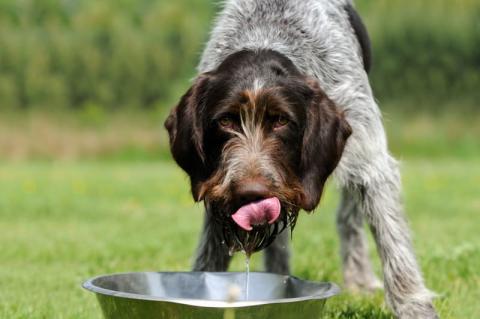
How to Improve Your Dog’s Kidney Health with Diet
Published on February 18 by Julia
Kidney disease is a common health concern in dogs, particularly as they age. Proper nutrition plays a crucial role in managing kidney disease and maintaining a good quality of life for affected dogs. A kidney-friendly diet can help slow disease progression, reduce symptoms, and support overall health. This article provides a guide to feeding dogs with kidney disease and the key components of a kidney diet.
Understanding Canine Kidney Disease
Kidney disease occurs when the kidneys lose their ability to filter waste and excess fluids from the blood. This can lead to toxin buildup, electrolyte imbalances, and dehydration. Common signs include increased thirst, frequent urination, loss of appetite, weight loss, lethargy, and vomiting.
Key Components of a Kidney Diet for Dogs
A specialized kidney diet aims to reduce the workload on the kidneys while ensuring proper nutrition. Here are the essential components:

1. Reduced Protein Content
While protein is essential for dogs, excessive amounts can worsen kidney disease by producing more waste products. High-quality, easily digestible protein sources, such as eggs, fish, and lean meats, should be used in moderation.
2. Low Phosphorus Levels
Phosphorus control is critical in slowing kidney disease progression. Foods with lower phosphorus content, such as rice, potatoes, and certain vegetables, should be prioritized. Prescription kidney diets often include phosphorus binders to further manage levels.
3. Controlled Sodium Intake
Reducing sodium helps prevent high blood pressure and fluid retention, which can strain the kidneys. Avoid feeding salty treats or processed foods, and opt for fresh, natural ingredients.
4. Increased Omega-3 Fatty Acids
Omega-3 fatty acids, found in fish oil, can help reduce inflammation and improve kidney function. Adding fish oil supplements to your dog’s diet may offer additional benefits.

5. Higher Moisture Content
Hydration is key for kidney health. Wet food, broths, or adding water to dry kibble can encourage fluid intake and help flush out toxins.
Recommended Foods for Dogs with Kidney Disease
- Cooked egg whites
- Boiled chicken or turkey (low phosphorus portions)
- White rice or pasta
- Sweet potatoes
- Carrots and green beans
- Fish oil supplements
Foods to Avoid
- High-protein meats (e.g., beef, lamb)
- Dairy products
- Processed dog treats
- High-sodium foods (e.g., deli meats, chips)
- High-phosphorus ingredients (e.g., organ meats, whole grains)
Consulting Your Veterinarian
Every dog is different, and dietary needs may vary based on the stage of kidney disease. Always consult your veterinarian before making significant changes to your dog’s diet. Prescription kidney diets formulated by veterinary nutritionists can be a great option.
A kidney-friendly diet can make a significant difference in managing kidney disease and enhancing your dog’s well-being. By focusing on low-protein, low-phosphorus, and high-moisture foods, you can help support your dog’s kidney function and improve their quality of life. Proper veterinary guidance, combined with dietary modifications, ensures your furry friend gets the best care possible.